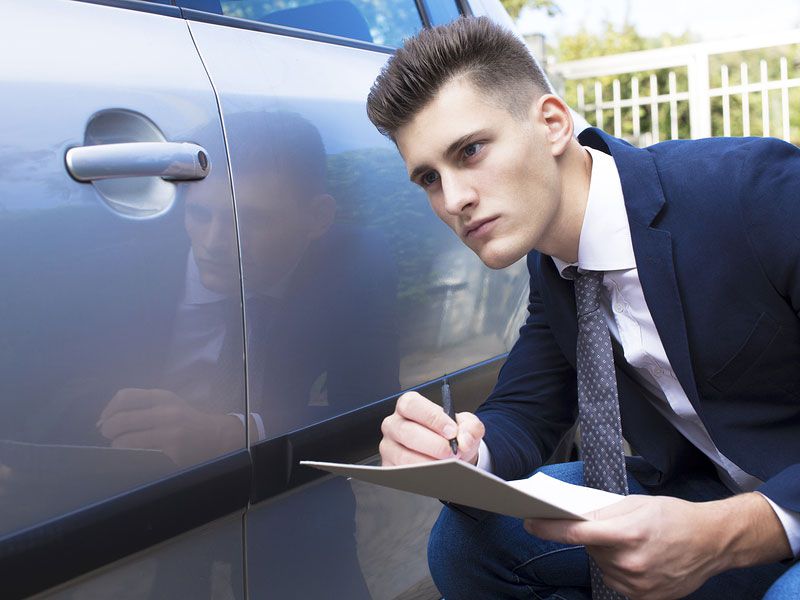Recent Articles
Popular Makes
Body Types
4 Things to Do When You're in a Car Accident
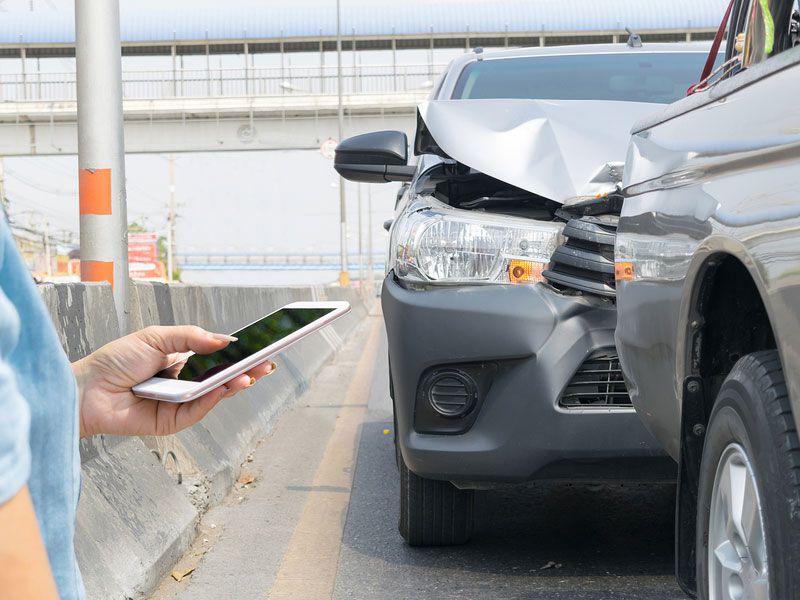
Car crash
Every year, millions of people are involved in accidents. Whether it's on a city street, a country road, or on the freeway, an accident is always unexpected and very stressful. If you were involved in an accident, would you know what to do? We have a few steps we highly suggest you consider in case you are involved in an accident in the future.
Before An Accident: Put an Emergency Kit Together and Check Your Coverage
A lot of insurance companies and police departments recommend keeping an emergency kit in your glove box. The kit is made up of a pad of paper, pen, a card with information about medical allergies or conditions if there are serious injuries, and a disposable camera (a camera phone can also work). The reason for this is twofold; you're going to need to trade information with other driver and you want to document the crash scene. The latter is important as it will give your insurance company and police an idea of what happened. You should also carry either a set of cones, warning triangles, or emergency flares to let drivers know what is going on.
Also, it's a good idea to look over your insurance coverage to see what your policy covers. You might be surprised that your coverage offers to cover the costs for towing or a replacement rental car.
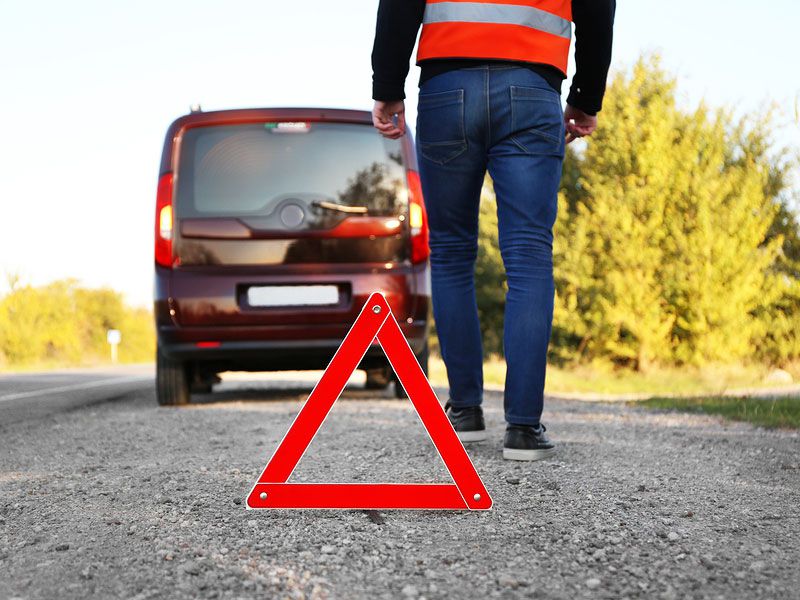
Step 1: Calm, Check, Call
So you get involved in an accident, the first thing you need to keep in mind is the three Cs: Calm, Check, and Call.
- Calm: First, you need to calm yourself down. You were just involved in an accident and your mind is going in all sort of directions. Take a few moments to breathe to get yourself into focus. The more focused you are, the better you can handle the situation.
- Check: See if you or any of your passengers are injured. If you or anyone seems unsure or groggy, call 911 immediately. It may be nothing, but it's better to play safe than sorry.
- Call: Once you've calmed down and have seen if everyone is ok, give the police a call. This is to make sure to keep traffic flowing around the scene and get a report filed. Also, call your insurance agent as they'll begin the process of the claim and tell you what they need.
And if you have a newer vehicle, it might be equipped with a telematics system (i.e. GM OnStar) which can detect if you were involved in an accident and will automatically call 911.
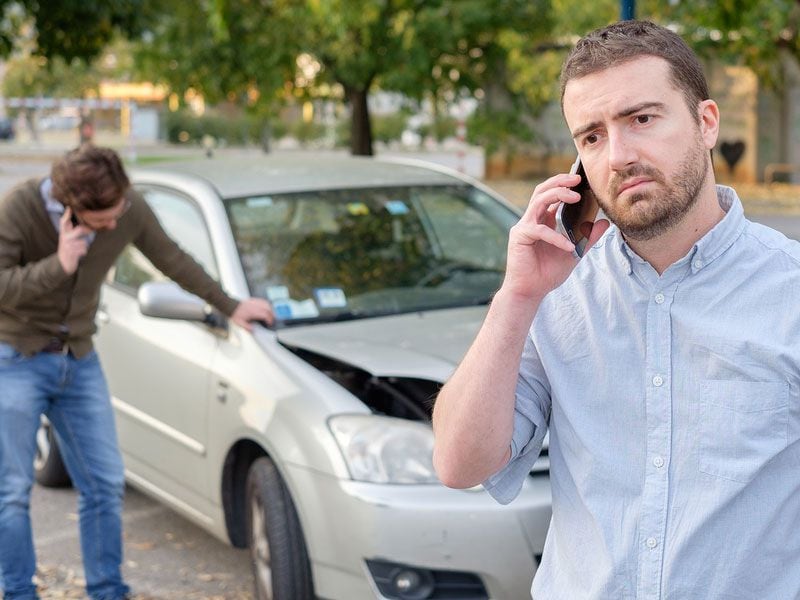
Step 2: Move To Safety
If you're involved in a minor accident, move your vehicle off to the side of the road or somewhere safe to make the road safe for other drivers and you. However, if the damage to the vehicle is too great or if you are unsure about moving the vehicle, put on the hazard lights, leave it, and get somewhere safe. You may end up causing a traffic jam, but you'll give the police an easier time of understanding what happened and you and your passengers will be out of danger.
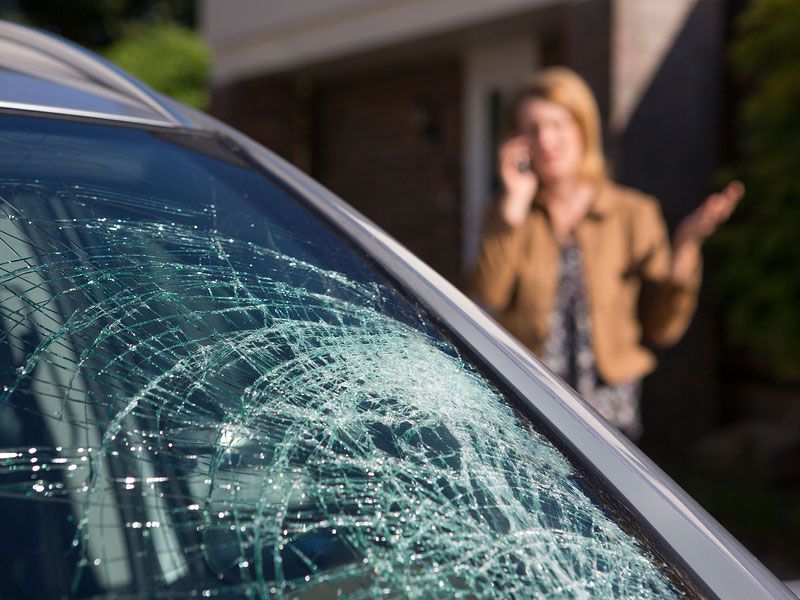
Step 3: Exchange Information
If you're involved in a two or more car accident, get together with the drivers and exchange your contact and insurance information. The most important pieces of information that need to be shared include:
- Full name and contact information
- Insurance company
- License plate number
- Type, color, and model of vehicle
- Location of accident
During this time, never say the accident was your fault to the other driver or police. You'll end up causing more problems. Another item that you should not say to other driver is that you will pay for the damages because it might cause more problems down the line.
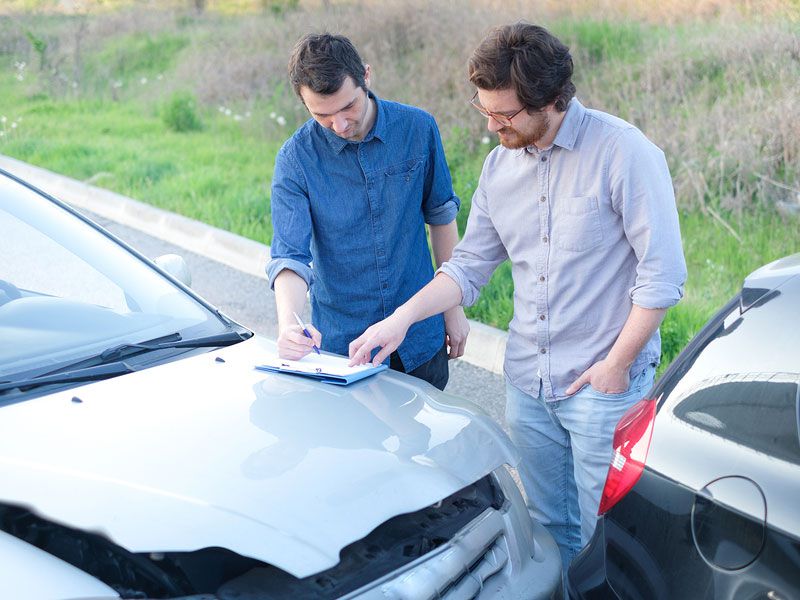
Step 4: Document, Document, Document
Time to get your camera out and document the accident scene. Get pictures of the vehicles and the scene itself, along with written information about the damage to the vehicles and how it happened. This information will help your insurance company understand the overall context of the accident and make key decisions on the next steps they want to take. If there were any witnesses, make sure to get their contact information; this will come in handy if the other driver disputes your version of what happened.
The police will also be taking information from you and the other driver to create an accident report. When talking with police, be polite and stick to the facts. If you become agitated and angry, you could escalate the situation into something worse than the original accident.
